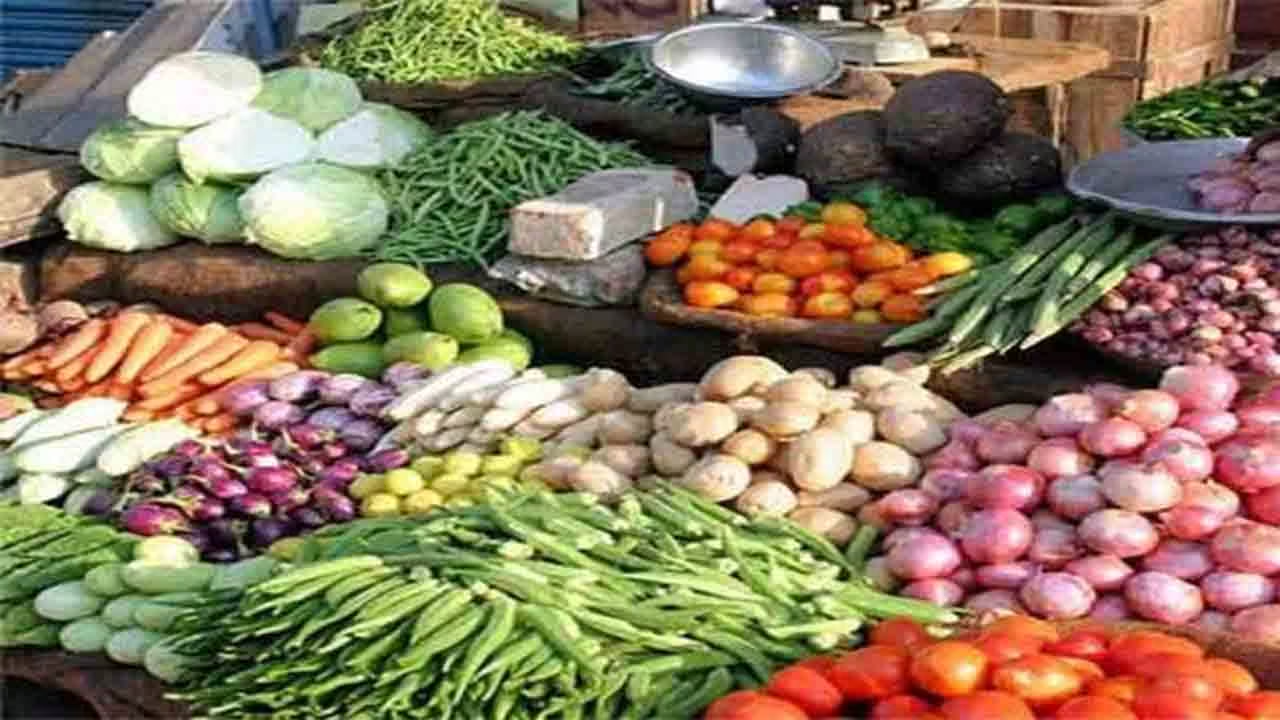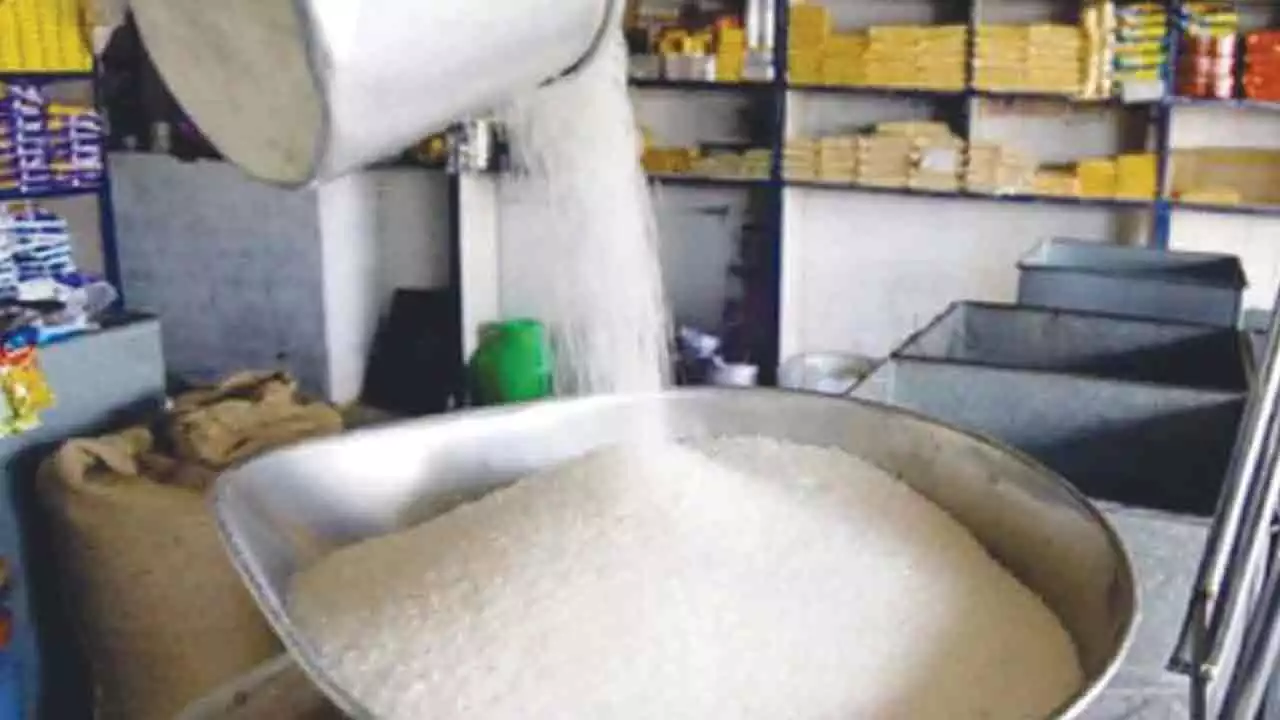In recent weeks, the cost of essential food items has been rising rapidly in Pakistan, placing a heavy burden on citizens already grappling with inflation. As markets become more expensive, basic food items, including vegetables, fruits, and poultry, are turning into luxuries for many. These price hikes are impacting households across the country, forcing people to make difficult choices to manage their monthly budgets.
Soaring Prices of Basic Commodities
The latest reports indicate a significant surge in the prices of essential items. Onions, a staple ingredient in Pakistani cuisine, are now selling at Rs.150 per kg. Tomatoes, equally essential, have reached Rs.140 per kg, making it difficult for families to prepare meals affordably. The price of garlic, a key ingredient in many dishes, has skyrocketed to Rs.750 per kg, while ginger is priced at an astounding Rs.900 per kg. Such high prices make even the simplest meals expensive for the average household.
Fruits, which are vital for a balanced diet, have also become increasingly unaffordable. Apples are now being sold at Rs.300 per kg, putting them out of reach for many. Bananas, often regarded as a budget-friendly fruit, are now priced at Rs.140 per dozen for the first grade and Rs.100 per dozen for the second grade, showing a notable increase that is affecting the dietary choices of consumers.
Fluctuating Poultry Prices
In addition to fruits and vegetables, poultry prices have also seen instability. The cost of broiler meat has decreased by Rs.18, dropping from Rs.551 to Rs.533 per kg. Despite this slight reduction, the prices remain high. Eggs, an affordable source of protein, have seen a minimal increase, rising by one rupee to Rs.316 per dozen. However, with already high prices, even a small increment affects households that rely on eggs as a protein source.
Citizens’ Concerns and Struggles
The rising prices of essential food items have left citizens frustrated and concerned. Many complain that even seasonal vegetables, which are usually more affordable, are now too expensive. With inflation driving up the cost of nearly every necessity, families are finding it increasingly difficult to make ends meet. Parents are concerned about providing a nutritious diet for their children, as high prices are limiting their access to essential foods.
“Vegetables, fruits, even basic spices like ginger and garlic are now beyond our reach,” says Asim, a resident of Karachi. “We used to buy onions and tomatoes without a second thought. Now, every visit to the market is stressful because prices seem to change daily, and mostly they are increasing.”
Such price hikes are also affecting the mental health and well-being of citizens, as they struggle to adapt to the rising costs of living. For families with limited incomes, the constant need to prioritize and reallocate funds is exhausting. Even middle-class families are feeling the pressure, as basic groceries consume a larger share of their budget than before.
Calls for Government Intervention
Citizens are urging the government to address the issue of unchecked price hikes. They believe that implementing strict measures to regulate market prices could ease their burden. “The government must establish a better system to monitor prices,” says Fatima, a mother of three. “If there’s no control, how will we manage? The shopkeepers are setting prices at their own discretion.”
The lack of a robust price control mechanism has allowed retailers to charge arbitrary prices, contributing to the current inflationary trend. Without intervention, prices are likely to continue rising, putting more items out of reach for the average citizen. Government regulation could involve monitoring wholesale and retail markets, enforcing fair pricing policies, and ensuring penalties for vendors who overcharge.
The Role of Market Dynamics
Several factors contribute to the fluctuating prices of food items. Supply chain disruptions, unpredictable weather, and import costs all play a role in determining market rates. Seasonal changes often lead to fluctuations in availability, which affects prices. However, the recent steep increases suggest that other factors, such as market monopolies and lack of oversight, may be influencing prices as well.
When the supply of certain items decreases, retailers tend to raise prices to maintain their profit margins. Additionally, with global supply chains affected by various economic challenges, the cost of imports has also risen, affecting the prices of items like ginger and garlic that may be imported during off-seasons.
Potential Solutions to Control Price Hikes
Experts suggest a few measures to control food inflation and provide relief to citizens. One proposed solution is to establish farmers’ markets that allow producers to sell their goods directly to consumers, bypassing middlemen and potentially lowering prices. This approach would also enable farmers to receive fair compensation for their produce, fostering a sustainable local economy.
Furthermore, public awareness campaigns on price control mechanisms and encouraging citizens to report unfair prices could also be beneficial. Engaging with communities and educating them about their consumer rights may help curb unethical practices among vendors.
Finally, ensuring a steady supply of essential items and creating a buffer stock for emergencies could stabilize prices. By managing imports and local production efficiently, the government could maintain a balance in supply and demand, preventing sudden price hikes.
A Need for Immediate Action
The current trend of rising food prices has placed a significant strain on Pakistan’s citizens, and without intervention, the situation may worsen. Essential items that were once affordable are now becoming luxuries for many families, impacting their nutrition and quality of life. Government oversight and price control measures are urgently needed to prevent further escalation.
Citizens are hopeful that the government will take swift action to bring stability to the market. By addressing this issue, the government can not only alleviate the immediate burden on households but also foster a more balanced and fair marketplace in the long term.



